' {Only} a silent place that once rang loud,
And trees and us - imperfect friends, we men
And trees since time began; and nevertheless
Between us still we breed a mystery.'
(The Chalk-Pit)
'their cloudy forms linked to earth by stately stems' (South Country')
 rhs.
rhs.There is enough material for a PhD or at least a Master's on this subject of Thomas and trees, I think! Any students out there?
Just looking at trees which are significant not simply a part of the scene - in the earlier, pre-enlistment poems only,
After Rain: The Hollow Wood: Beauty: First Known When Lost: House and Man: Home(Often had I gone):Fifty Faggots: The Chalk-Pit: Under the Woods
And in prose works there is so much.
From 'The South Country':
'I like trees for the cool evening voices of their many
leaves, for their cloudy forms linked to earth by stately
stems — for the pale lifting of the sycamore leaves in
breezes and also their drooping, hushed and massed
repose, for the myriad division of the light ash leaves — for
their straight pillars and for the twisted branch work,
for their still shade and their rippling or calm shimmering
or dimly glowing light, for the quicksilver drip of dawn,
for their solemnity and their dancing, for all their sounds
and motions — their slow-heaved sighs, their nocturnal
murmurs, their fitful fingerings at thunder time, their
swishing and tossing and hissing in violent rain, the roar
of their congregations before the south-west wind when
it seems that they must lift up the land and fly away
with it, for their rustlings of welcome in harvest heat
— for their kindliness and their serene remoteness and
inhumanity, and especially the massiest of the trees that
have also the glory of motion, the sycamores, which are
the chief tree of Cornwall, as the beeches and yews are
of the Downs, the oaks of the Weald, the elms of the
Wiltshire vales. '
 |
| own picture |
And from Horae Solitariae
I cannot walk under trees without a vague powerful
feeling of reverence. Calmly persuasive, they
ask me to bow my head to the unknown god. In the evening, especially, when the
main vocation of sight is to suggest what
eyes cannot see, the spacious and fragrant
shadow of oak or pine is a temple which
seems to contain the very power for whose
worship it is spread.
Those qualities in the South Country extract - their kindliness, and their serene remoteness and inhumanity - can be found in the poems.
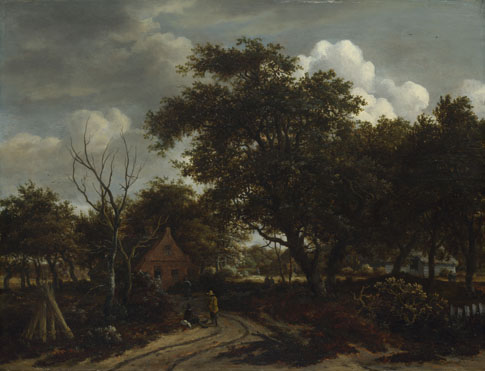 |
| Hobbeman - National Gallery |
Interval - a roaring wind,
But the woodman's cot
By the ivied trees
Awakens not
To light or breeze.
It smokes aloft
Unwavering:
It hunches soft
Under storm's wing.
And in Beauty, that angry poem that is soothed as it is written.
But, though I am like a river
At fall of evening when it seems that never
Has the sun lighted it or warmed it, while
Cross breezes cut the surface to a file,
This heart, some fraction of me, happily
Floats through a window even now to a tree
Down in the misting, dim-lit, quiet vale;
Not like a pewit that returns to wail
For something it has lost, but like a dove
That slants unanswering to its home and love.
There I find my rest, and through the dusk air
Flies what yet lives in me. Beauty is there
Kindness, of course is implied in the Cherry Trees(though sadly) and the many apple trees.
Perhaps there is 'serene remoteness' about the trees in these famous lines
I should use, as the trees and birds did,
A language not to be betrayed;
And what was hid should still be hid
Excepting from those like me made
Who answer when such whispers bid.
But inhumanity? Aspens is one of Thomas's most 'autobiographical ' poems, Aspens, with its analogies between a tree structure and the structure of poetry. In it he sees himself, flawed and 'unable to love' perhaps, but accepting himself. Separating himself from 'those who like a different tree.' An important poem.
ASPENS
All day and night, save winter, every weather,
Above the inn, the smithy and the shop,
The aspens at the cross-roads talk together
Of rain, until their last leaves fall from the top.
Out of the blacksmith's cavern comes the ringing
Of hammer, shoe and anvil; out of the inn
The clink, the hum, the roar, the random singing -
The sounds that for these fifty years have been.
The whisper of the aspens is not drowned,
And over lightless pane and footless road,
Empty as sky, with every other sound
No ceasing, calls their ghosts from their abode,
A silent smithy, a silent inn, nor fails
In the bare moonlight or the thick-furred gloom,
In the tempest or the night of nightingales,
To turn the cross-roads to a ghostly room.
And it would be the same were no house near.
Over all sorts of weather, men, and times,
Aspens must shake their leaves and men may hear
But need not listen, more than to my rhymes.
Whatever wind blows, while they and I have leaves
We cannot other than an aspen be
That ceaselessly, unreasonably grieves,
Or so men think who like a different tree.
 Monet's poplars.
Monet's poplars.
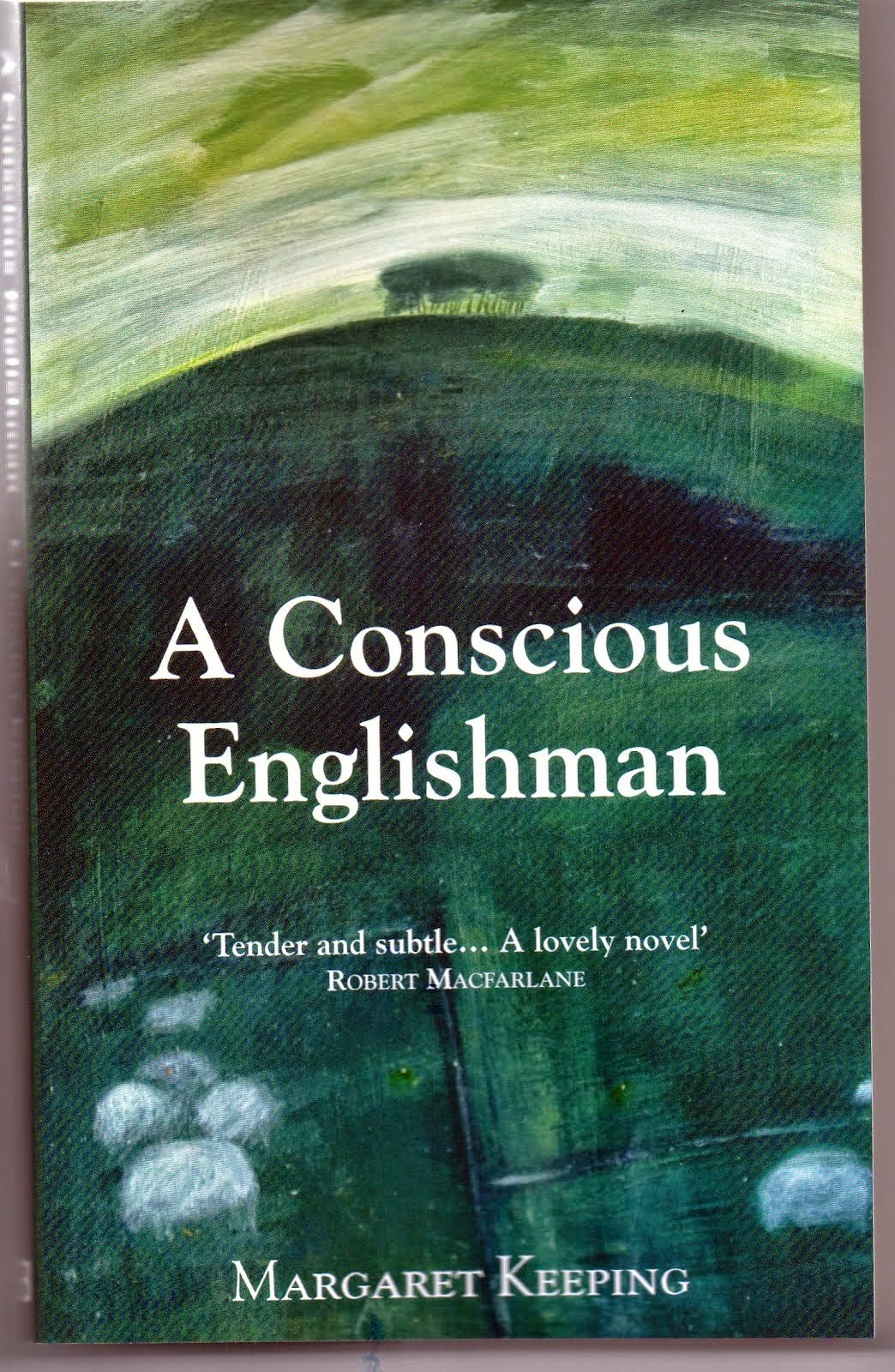

 collective commons
collective commons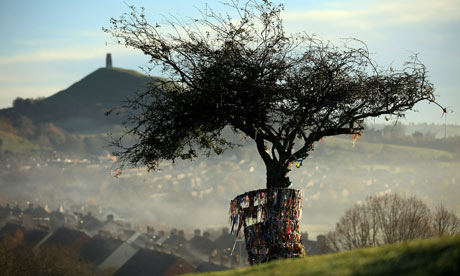 guardian
guardian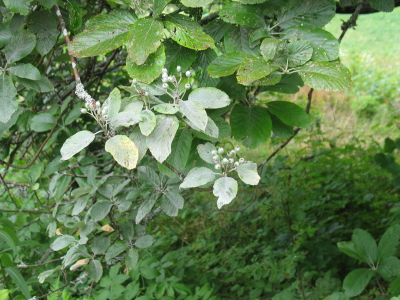
 lesser celandine (wiki)
lesser celandine (wiki)

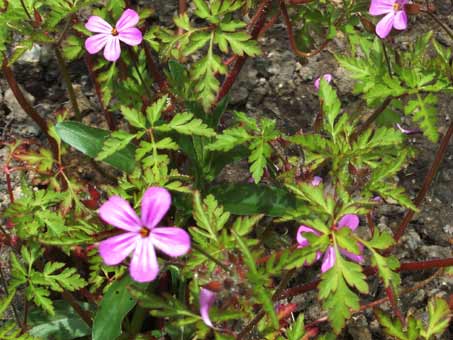





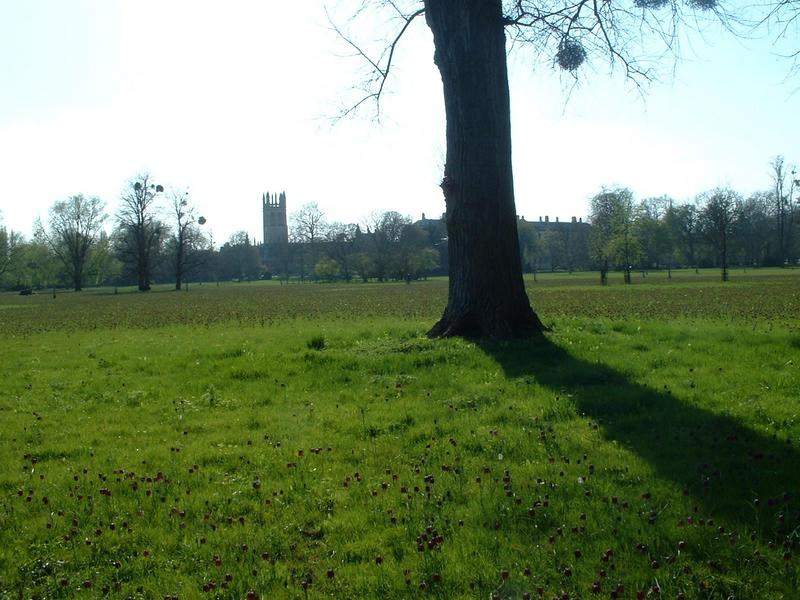
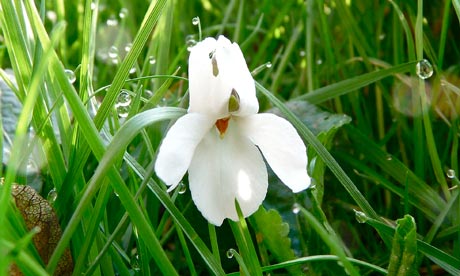 guardian.co.uk
guardian.co.uk



